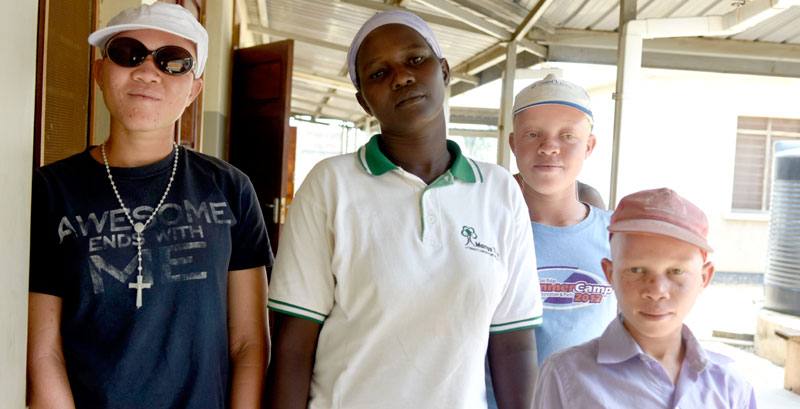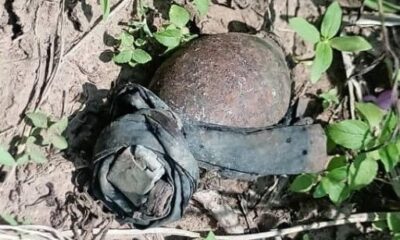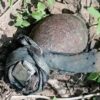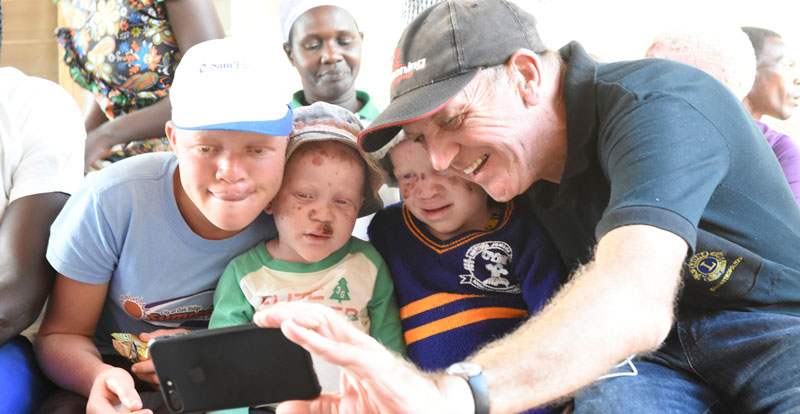human traffickingFeatures
Albinos Woes: Government Action needed
As they strive to access the basic rights such as; education, health and social welfare, Uganda Albinos continue to face extreme human rights violations, including: kidnap, fatal physical violence, rape and severe discrimination. Most of them prefer to hide away from the public because many people consider them sub-human.
Albinism is a global but rare genetic disorder. The myth and superstition surrounding issues albinism is grave. To break through it, more people need to be educated on this, non-contagious, genetically-inherited condition that can occur in both sexes regardless of ethicality.
Most people do not understand that for a child to be born as an Albino, both the father and mother must carry the gene. They themselves do not have to be Albinos.
Albinism is a condition that results from lack of pigmentation in the body. It affects the eyes, hair and skin. As such Albinos are not comfortable with the scorching sun and bright light.
Betty Akello, 35, a peasant in Oyam District, is a mother of six children, three of whom: Apollo Cinderella 17, Rebecca Akullo and Samuel Okello are Albinos. “When I gave birth to my first daughter, the nurse was worried and told me it was not a normal birth.
I asked her why; she respondent that I had given birth to an Albino. It never bothered me because my daughter was happy and playful,” Betty said. “I kept quiet and kept on looking at the baby throughout the day. When my husband came to the hospital to collect us, he never reacted to what had come up. He simply smiled and looked at the baby, saying that all kids are special and precious gifts from God; and we left to go home.”
Akello added that she interspersed the birth of her children mixed between the Albinos and the normal ones. “Whereas we did all we could as parents to give our children a normal life, the community never understood us or left our children alone to live a normal life.
These kids have suffered the worst form of stigma and discrimination in their lives. Some people, even elders in the community, call them names and refer to them as white pigs. Really, we do not decide on the fate of our children, but God who gives had a reason for it.
“As a parent, I have been very close to all my children and cultivated in them a spirit of togetherness. We do everything as a family and this bonds us even more because the non-Albino kids understand their siblings better; they defend them always,” Akello added.
She said that she is less concerned by societal judgment, outright stigma and discrimination that her children have had to undergo, but rather worried on the future of her three siblings. “I have always worked hard to give them all they need, but the issues of skin cancer, given the bad weather here in Northern Uganda, worry me day and night.”
Indeed it is on this note that Akello travelled with her three Albino children for over 120 kilometers from Telela village, Ngai sub-county in Oyam District to Gulu Regional Referral Hospital for a special skin cancer screening and treatment camp. “A friend alerted me of this skin clinic and thought that my kids needed to be screened, too. So, I had to prepare and went because also my kids were in dire need of the skin lotion. I didn’t know where to find it, but we were given free ones at the clinic.”
Akello’s fear is not far from that of George Eti, a peasant from Alebtong District, whose two out of nine children are Albinos. “I am here to try and get some body lotion for my children, so I can keep them away from the cancer threat, but my challenge is; I don’t know where to buy these body lotions from. So I opted to come here to get one or two since they are given out for free.”
Besides the stigma of discrimination and the threat if skin cancer, almost all people with albinism are visually impaired.
Cinderella, Akello’s daughter, is a Senior Two student at Iceme Girls’ Secondary School. She says she can no longer read what the teachers write on the blackboards; she cannot see properly. Even with her seat in the first row of the classroom, she listens more, to be able to grasps what is being taught, but for the case of note-taking notice she depends on her close friends to help out.
Martin Lubwama, an Albino and the Recruitment Officer with Sea Owl, a recruitment agency, revealed that this visual problem varies from individuals to individuals. For instance, his sight is in Negative 13, yet the average is Negative or Plus 2 to 7, but he still handles his business as usual.
The unusual thing about Lubwama’s sight is that even in as Negative, he drives normally within the congested streets of Kampala. “I am a better driver than many people around town who keep on getting involved in accidents. I can inevitably say we are all equal and able, but only with different abilities.”
Dr. Claire Walusimbi Musoke, an optometrist with Cowen and Rifkin Optical Centre in Jinja, revealed that most Albinos have a problem with the sun because of the lack of the pigment that would protect their eyes from the ultra-violet rays that strike directly into the eyes. She said that most Albinos are short-sighted, thus the need to test their sight and equip them with the right eye glasses.
She said that to get Albinos to afford the sun glasses they need, they have partnered with the Source of the Nile Union of People with Albinism (SNUPA), to help restore some sight complication and help the children for better education by helping their sight.
Unraveling the many myths and misconceptions surrounding albinism, is still a problem especially when stigma and discrimination continues to prevail. Whereas in other countries like neighbouring Tanzania, Albinos are being persecuted by unscrupulous individuals in search of power and money, here it is a different scenario; it is the case of rejection and broken families. There, it is belief that Albino body parts bring great wealth.
Many women have been divorced by their husbands and shunned by families after giving birth to children with albinism. The women carry the burden of pain and guilt of being accused innocently for sleeping with men of other races, being cursed and termed as unclean.
Christine Ateng, 22, and a mother from Kole District testifies on how her husband abandoned them and ran away on realizing she had given birth to an Albino. Ateng has been accused of having sex with one of the Chinese men working on the road project in the region. A number of women have been cited dating the Chinese and producing children with some of the women within the vicinity of their work place.
“I have never even thought of it. What I know is one of my aunts, too, is an albino so this could be from our lineage and not what they are saying that I could have slept with these Chinese men.” Since her husband abandoned them, Ateng and her son now fend for themselves.
According to Lubwama, for people with albinism to continue leading a normal life, they should forget people’s perception about them. “They often call me a ‘Namagoye’, a vernacular term, meaning an Albino; and I tell myself, ‘So what’? I am human, too, just like anybody else. We need to build self-confidence to deal with this stigma and stereotype.”
Asked to shed a light on what it is like to be an albino in Europe, Geoff Walker Okello, a member of the Lions Club of Gulu, said that Whites, too, have albinism, but it is not as visible as it is in Africa. He noted that he relates with them very easily because they all look alike. Okello stressed that the challenges faced by Albinos in Africa is enormous that it needs immediate intervention and collation to help sensitise the populace in a bid to help rebuild hope for a better life for all Albinos.
“When I was young, I was told that I would not die. They said I would disappear because people like me – people with albinism – are not like other people. I spent my childhood waiting to disappear but here I am growing day and night and helping make a difference in my community,” Peter Ogik, the Chairperson of SNUPA said, in response to myth and stigma surrounding his life as an Albino.
It is on this ground that Ogik and his SNUPA team is involved in advocacy and practical work to address some of the afore-mentioned problems. He said that SNUPA will continue to provide health-care services, raise awareness for change of attitude, provide access to education, economic empowerment, and employment and build the capacity of people with albinism to live decent life and livelihood.
He appealed to the Ministry of Information and National Guidance and other line ministries to join hands with them to help sensitize the population on who the Albinos are how they are to beat irony of ignorance from the public.
The recent International Bar Association’s Human Rights Institute (IBAHRI) report, “Waiting to Disappear”, with the International and Regional Standards for the Protection and Promotion of the Human Rights of Persons with Albinism, (IRSPPHRPA), suggests that the legal protection of the rights of persons with albinism needs to be dramatically improved.
The IBAHRI report shows that the rate of occurrence of albinism in sub-Saharan Africa is slightly higher than elsewhere in the world. At least one out of every 5,000 births is an albino compared to one in-20,000 births, being an Albino in Europe.
With some of their body parts purportedly being sold at high prices on the black market for use in witchcraft and/or rituals, an act that has resulted in persons with albinism being victims of kidnap, murder and mutilations, there is still a hope that the world will realize and recognize that they are humans, too.
Comments
































